
"Moderation is like diet coke, decaffeinated coffee or non-alcoholic beer. Healthier but it's so unauthentic. Who would want this?"
- Wong Chin Huat
I am glad political analyst Wong Chin Huat finally belled the cat. He makes three important points. The first is that the Umno/PAS union should not be underestimated. The second that new voters – especially young voters – are the wild cards, and the most important third point, “moderation” is an ultimately self-defeating strategy.
What exactly does “moderation” mean? Most Malaysians, especially non-Malay/Muslims, define it as the middle ground between the religious and racial politics of the majority and the “rights” of minority communities. Moderation has nothing to do with secular governance, nor does it have anything to do with egalitarian policy. Most of the time, it is political rhetoric.
Of course, when it comes to political rhetoric, moderation is pusillanimous and normally means engaging in false equivalencies and tempering expectation by blaming everyone for certain problems, instead of attacking ethnocentric narratives and policies.
To Malay power structures, “moderation” is defined by acquiescence to the concerns of the minority communities. By how pliant their non-Malay counterparts are to their racial and religious agendas. Maintaining hegemony in a racial and religiously diverse coalition is the only form of governance that Malaysians understand.
Hence, moderation has always been defined not by values or policies – which are predicated on not spooking the majority – but rather on compromise at the expense of oversight and accountability. Every political party has its definition of moderation.
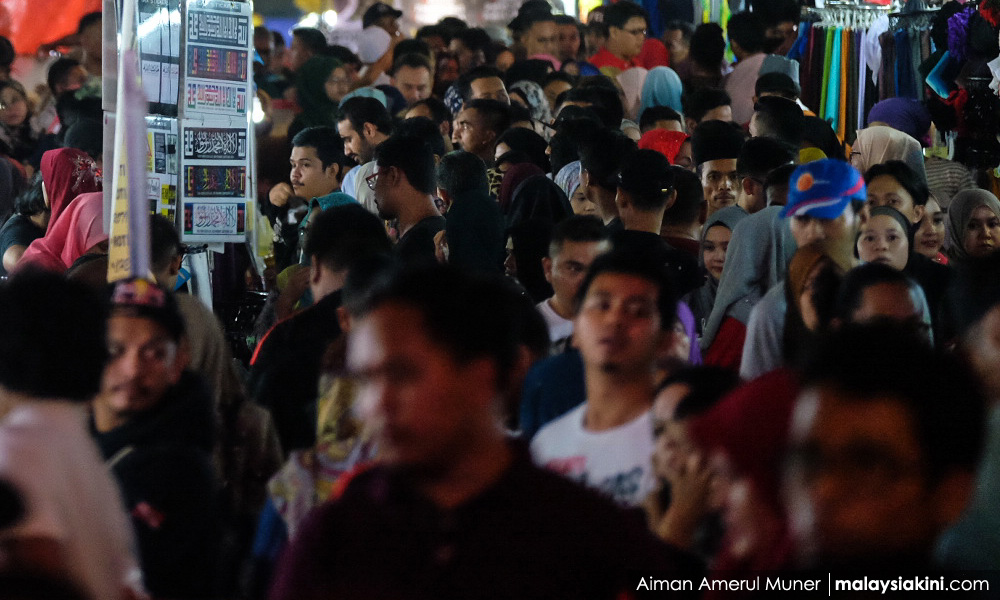
When it comes to “moderation”, PAS is now free to define it along an Islamic context, but more importantly, jurisprudence (if one reads PAS and their supporters political literature) agenda – “Some opposition analysts think that PAS was crippled when Amanah broke away, but my thinking is different, especially when speaking to PAS grassroots-level organisers. While a political party needs a robust dialectic within it to remain relevant, PAS is now free to define (centrally) its own version of moderation without having to rely on non-Muslims (or Muslims who are simpatico to non-Muslim politicians) input to craft a narrative which resonates with their ever-growing base.”
PAS is defining the Islamic discourse and because of the supine stand - moderate instead of progressive - of Pakatan Harapan, it has got to a point where someone like Steven Sim (below) is accused of proselytising by Tuan Ibrahim Tuan Man, even when Sim was doing whatever he was doing in a church with a Christian audience.
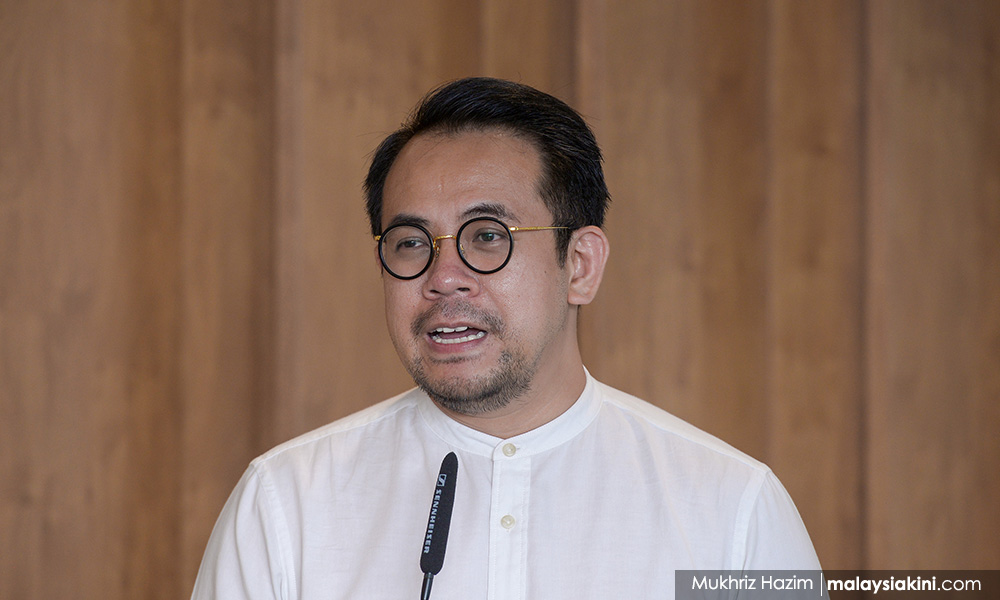
Imagine that. I am in constant communication with many non-Muslim religious leaders and they tell me that they have to be more careful when it comes with dealing with Muslims or engaging in the political process.
This is what the far right and the Islamists in this country want. This should be countered by a progressive state narrative, instead of the so-called moderate agenda of the religious bureaucracy which, in reality, is anything but moderate.
Take affirmative action, for instance. I am not going to get into a definitional argument about whether we can call what we have here – race-based affirmative action for the majority – affirmative action, but rather just point out that Harapan is never going to market needs-based affirmative action as a “moderate” position.
How could they? Affirmative action and the other race-based entitlement programmes are the bedrock of mainstream Malay politics. There is nothing “moderate” about attempting to go against Malaysian political orthodoxy. It is, in fact, revolutionary, or maybe evolutionary, depending on how you view race relations in this country.
The Harapan grand poohbah talks about the deleterious effect these policies have had on the Malay community, but does not really do anything about it. Anwar Ibrahim (below) talks a good game about speeding up the process for needs-based programmes, but it remains to be seen if he can commit to his rhetoric.
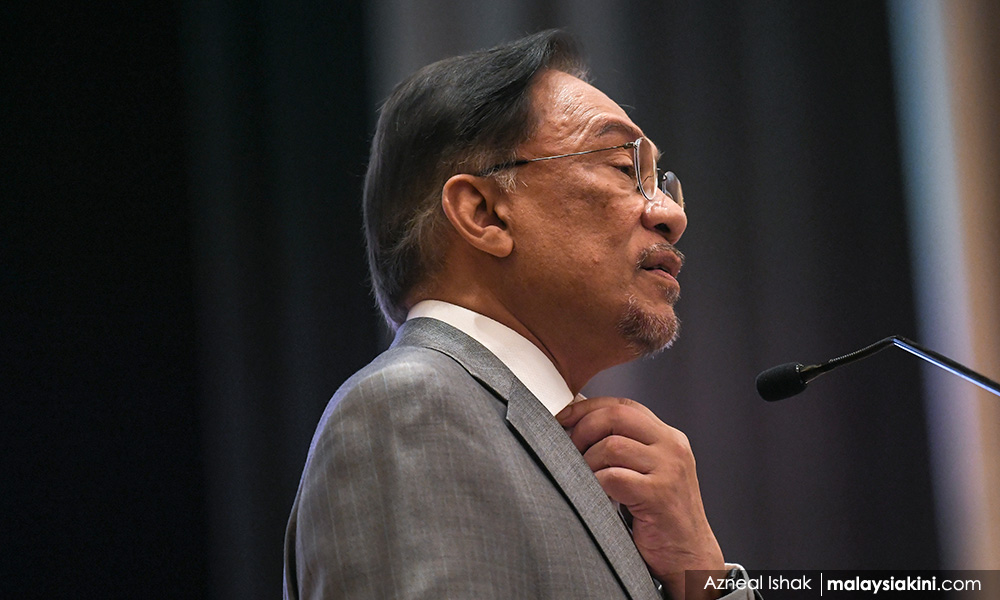
Whatever the case, attempting to market this position as “moderate” is not going to work. What Harapan has to do, is to commit to a progressive agenda (which is what needs-based action is), which would ultimately benefit all Malaysians, instead of continuing policies which ultimately have a negative impact on the majority community.
You cannot market progressive ideas as moderate, especially when you are up against a far-right coalition which you are attempting to differentiate yourself from. People need to know what makes you different, for better or worse, and understand the kind of change you are going to bring to the table.
At the height of the euphoria of Harapan’s historic win, I wrote an article of PAS’ foreboding green tsunami. In it, I argued that “losing” the election, the schism with Amanah and being demonised by the non-Malays, was the best thing that ever happened to PAS.
A post-May 9 milieu, with its fractious Harapan politicians and the backtracking of the Harapan manifesto, has enabled PAS to forge a coherent Islamic narrative that has Harapan spooked.
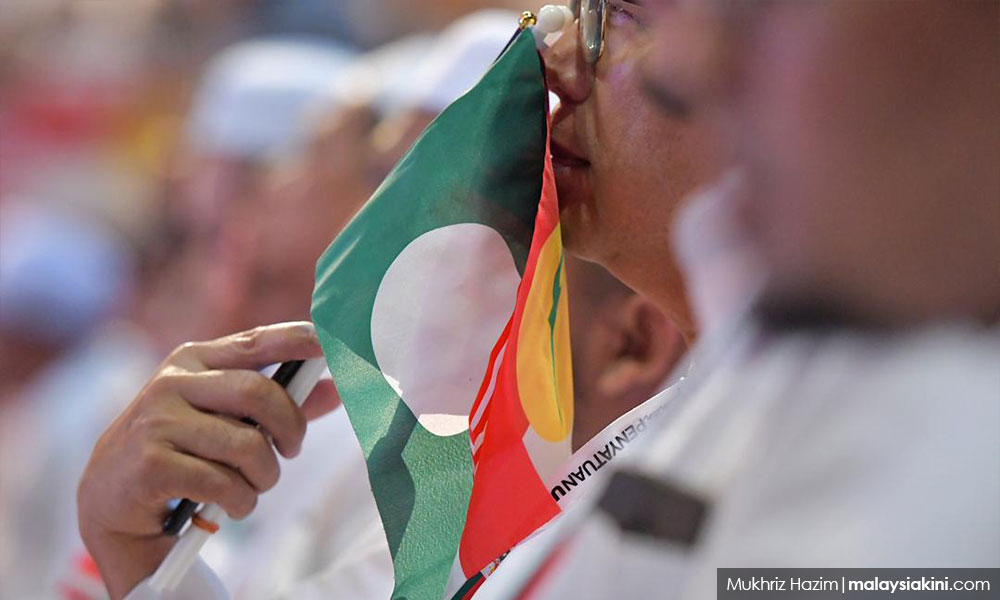
PAS made Umno bend the knee, continues to laugh at Amanah’s high jinks and nods approvingly that its religious agenda, and not Harapan’s, is promulgated by Harapan’s religious czar, Mujahid Yusof Rawa.
Even with young voters, PAS strategists and grassroots-level activists tell me that they feel confident that PAS could benefit. After all, religious schools are the perfect foundation to establish Islamic norms in young people. Indeed, with the Harapan regime, pouring money into religious schools – the DAP in Penang has done a wonderful job of sustaining Islamic schools – young voters from these schools are whom PAS believes will carry them, especially in urban areas.
But if these young people are a hope for PAS, then they are a hope for Harapan too. Instead of concerting development in urban areas, what the Harapan regime should be doing is creating more opportunities for young people in the Malay heartland, instead of narcotising them with religion through proxies.
The far-right does not fear “moderation.” What they fear is going up against progressive policies because they have worked in the past. Look at how colonial policies and then post-colonial polices turned into shackles by gradual religious processes brought upon by political chicanery. Look at the majority culture before and after the nefarious agendas of the political elite - which includes the non-Malay political class.
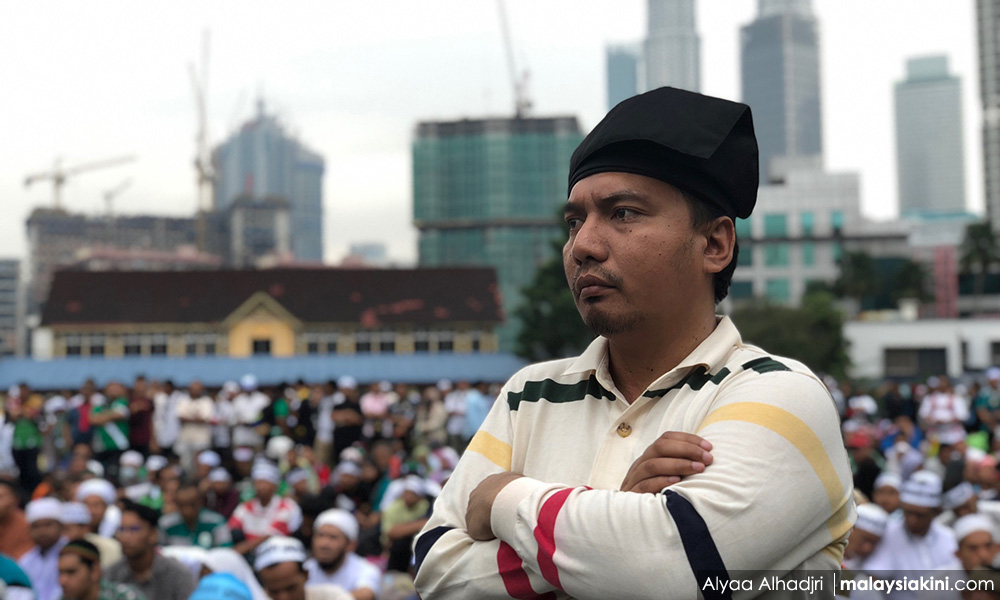
Progressive policies may dispel the fears of young people that the system is not working for them and all they have to fall back on is their racial and religious privilege. Why do you think the far-right and the Islamists in this country are always harping on “liberalism” and attempting to demonise Malays who are progressive and inclusive in their weltanschauung (world view)?
Why is there an exodus from states where there is much religion, but very few jobs or opportunities? Why is it imperative for the far-right to make inroads into urban areas which subsidise their religious and racial preoccupations through state-funded religious bureaucracies and other entitlement programmes?
We know inclusive policies work. We know oversight and accountability work. We know this because we had a baseline which was eroded by ethnocentric and religious agendas which took us out of the fast track to a developed nation, and which now makes Vietnam a better bet than Malaysia.
It is pointless talking about how we should set aside our differences and work together when the politicians we voted for are not carrying out their mandate which got them voted into office.
Instead, what the Harapan politicians are doing is playing the “moderate” game, hoping this will keep them in power, while the far-right and Islamists forces in this country gather strength and wait to make their move.
“Moderation” enables them.
S THAYAPARAN is Commander (Rtd) of the Royal Malaysian Navy. A retired barrister-at-law, he is one of the founding members of Persatuan Patriot Kebangsaan. - Mkini



No comments:
Post a Comment
Note: Only a member of this blog may post a comment.